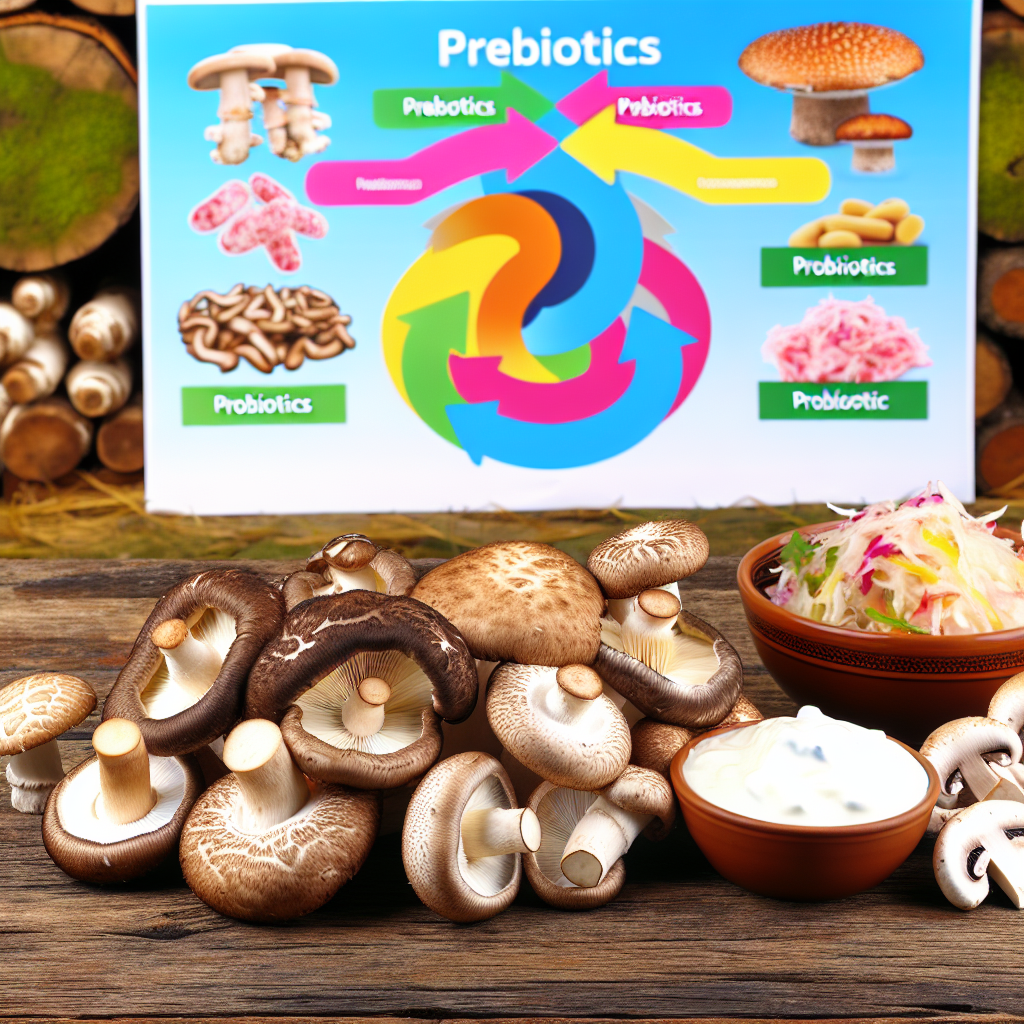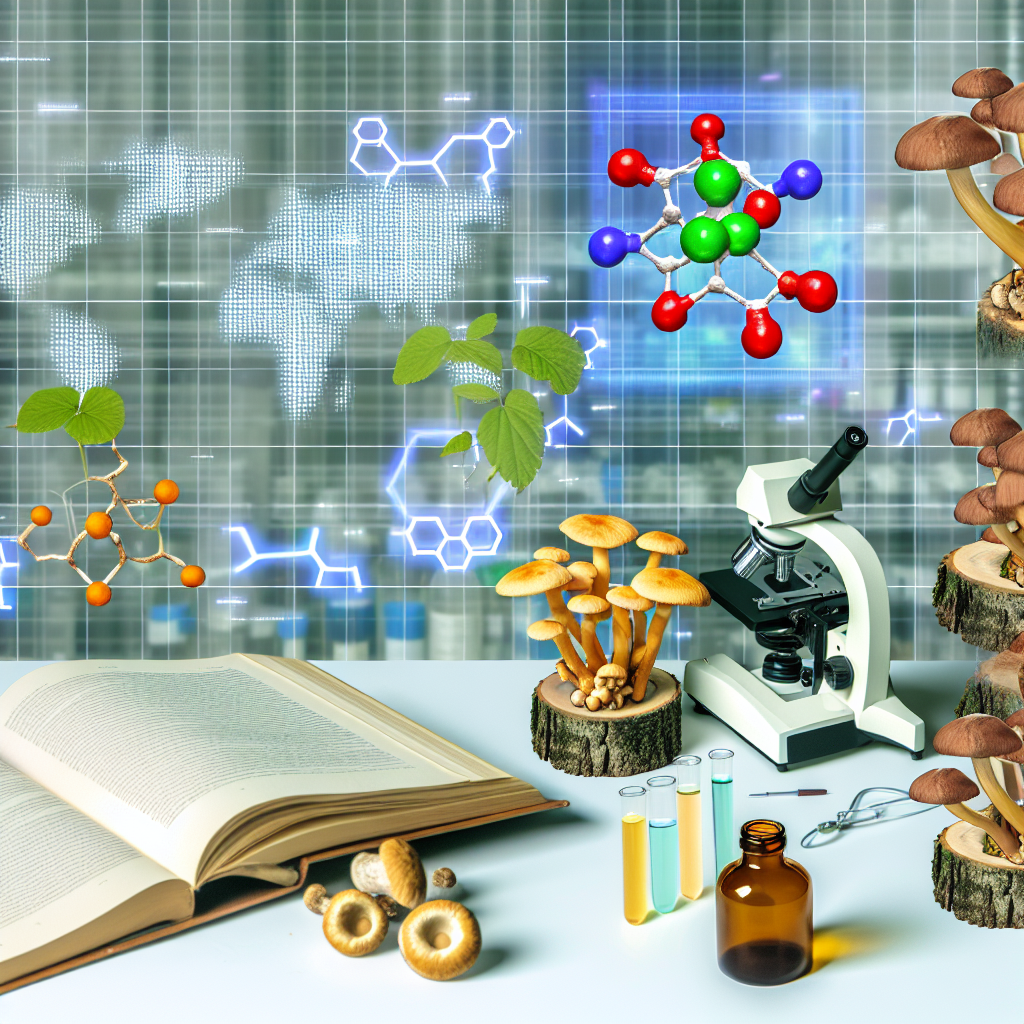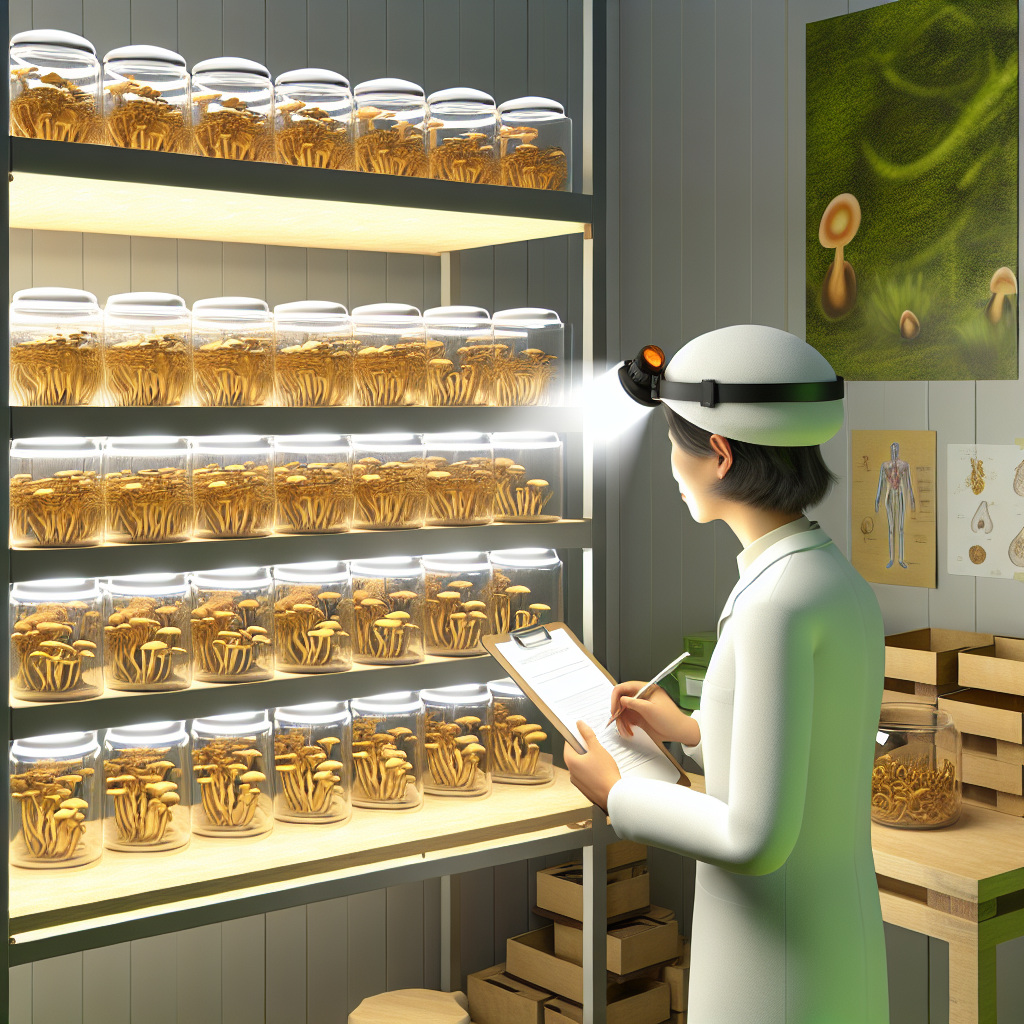Mushroom Prebiotic Benefits: Gut Health Revolution
Introduction
In recent years, gut health has taken center stage in nutrition and medicine. Research points to a balanced gut microbiome—composed of trillions of beneficial bacteria, fungi, and microbes—playing a key role in digestion, immune response, mental health, and even chronic disease prevention.
One of the most exciting breakthroughs in gut health research involves mushrooms as natural prebiotics. Prebiotics are non-digestible fibers that nourish probiotics, our beneficial gut bacteria. While prebiotic-rich foods like garlic, bananas, and onions have long been known, mushrooms are emerging as a potent alternative due to their unique polysaccharide content.
Packed with beta-glucans, chitin, and other prebiotic fibers, mushrooms help strengthen the gut microbiome, support immunity, and reduce inflammation. Scientific studies show that these mushroom-derived fibers enhance microbiome diversity, promoting beneficial bacteria like Lactobacillus and Bifidobacterium.
Medicinal mushrooms such as Reishi (Ganoderma lucidum), Lion’s Mane (Hericium erinaceus), Shiitake (Lentinula edodes), and Turkey Tail (Trametes versicolor) are particularly notable for their gut-supportive and immune-enhancing properties.
Beyond the digestive system, mushrooms may also support the gut-brain axis, the biological connection between the gut and mental health. By fostering beneficial gut bacteria, medicinal mushrooms could positively influence mood, cognition, and stress resilience.
As the focus on functional foods continues to grow, mushrooms are at the forefront of gut health solutions. This post dives into the scientific support for mushroom prebiotics and how they’re revolutionizing digestive wellness.
The Science Behind Mushroom Prebiotics: How They Support Gut Health
Numerous studies validate the prebiotic potential of mushrooms, specifically their polysaccharide content—which consists of beta-glucans, chitin, and other fiber-based compounds. These act as a fuel source for beneficial gut bacteria, helping rebalance and strengthen the microbiome.
The Role of Mushroom Polysaccharides in Gut Microbiota
A 2017 study published in Nature Communications found that mushroom-derived polysaccharides encourage the growth of beneficial gut bacteria while suppressing harmful microbes. Researchers specifically observed that Shiitake and Reishi mushrooms increased Bifidobacterium and Lactobacillus populations, which contribute to improved digestion and immune function ([Wu et al., 2017](https://www.nature.com/articles/ncomms14878)).
Turkey Tail Mushrooms: Supercharge Your Gut and Immune System
Turkey Tail mushrooms contain unique compounds, polysaccharopeptides (PSP) and polysaccharide-K (PSK), that modulate gut microbiota and enhance immune function. A 2014 clinical study published in Applied and Environmental Microbiology found that Turkey Tail supplementation significantly increased beneficial gut bacteria, which contributed to better immune system regulation ([Kimmons et al., 2014](https://journals.asm.org/doi/10.1128/AEM.02586-14)).
Lion’s Mane: The Gut-Brain Powerhouse
Lion’s Mane mushrooms are well-known for their neuroprotective and gut-supporting effects. A 2020 study in the International Journal of Medicinal Mushrooms revealed that Lion’s Mane extract promotes gut microbiome diversity and helps regulate gut inflammation. Since gut inflammation is linked to stress and cognitive decline, Lion’s Mane may also support mental clarity and stress resilience ([Friedman, 2020](https://www.begellhouse.com/journals/708ae68d64b17c52,forthcoming,45119.html)).
Mushrooms vs. Synthetic Prebiotics: Which is Better?
A 2021 comparative study in Frontiers in Microbiology examined traditional prebiotics (such as inulin) against mushroom-derived fibers. The study found that mushroom-based prebiotics provide a more sustained and diverse microbiome response compared to synthetic alternatives. This makes them an ideal option for individuals with gut sensitivities ([Singdevsachan et al., 2021](https://www.frontiersin.org/articles/10.3389/fmicb.2021.618704/full)).
Key Benefits of Mushroom Prebiotics for Digestive Health
The diverse range of gut health benefits associated with mushroom prebiotics goes beyond digestion. Here’s why they stand out:
✅ Enhance Beneficial Gut Bacteria – Promote Lactobacillus and Bifidobacterium, which help aid digestion.
✅ Reduce Inflammation – Mushroom beta-glucans help regulate gut inflammation linked to bloating, IBS, and leaky gut.
✅ Strengthen Immunity – Mushroom polysaccharides interact with gut flora to boost body defenses against infections.
✅ Support the Gut-Brain Axis – Improve cognitive function and emotional resilience by supporting gut microbiome balance.
✅ Offer a Natural Alternative to Synthetic Prebiotics – Unlike synthetic fibers, mushrooms provide a sustained and diverse microbiome response.
Conclusion: A Gut Health Revolution Powered by Mushrooms
The emerging research on mushrooms as prebiotic superfoods marks a game-changing revolution in digestive health. Beta-glucans, chitin, and other prebiotic fibers in mushrooms act as powerful fuel for beneficial gut bacteria, leading to better digestion, improved immunity, and even cognitive benefits.
From Reishi’s immune-enhancing properties to Lion’s Mane’s gut-brain connection, medicinal mushrooms offer an all-natural, holistic solution for gut health. With scientific studies backing their effectiveness, integrating these mushrooms into your daily routine—through diet or supplements—could be a powerful step toward optimizing digestive wellness.
As interest in natural gut health solutions continues to rise, mushrooms are set to play a critical role in advancing digestive and immune support. The gut health revolution is here—and mushrooms are leading the charge!
Summary:
Mushrooms are emerging as a powerful prebiotic superfood that can revolutionize gut health. The unique polysaccharides in mushrooms, such as beta-glucans and chitin, act as fuel for beneficial gut bacteria, promoting microbiome diversity and supporting immune function, digestion, and the gut-brain axis. Medicinal mushrooms like Reishi, Lion’s Mane, and Turkey Tail are proving to be more effective than synthetic prebiotics, making them a natural and holistic solution for optimizing digestive wellness.
References:
1. [Wu et al., 2017. Nature Communications](https://www.nature.com/articles/ncomms14878)
2. [Kimmons et al., 2014. Applied and Environmental Microbiology](https://journals.asm.org/doi/10.1128/AEM.02586-14)
3. [Friedman, 2020. International Journal of Medicinal Mushrooms](https://www.begellhouse.com/journals/708ae68d64b17c52,forthcoming,45119.html)
4. [Singdevsachan et al., 2021. Frontiers in Microbiology](https://www.frontiersin.org/articles/10.3389/fmicb.2021.618704/full)

Dominic E. is a passionate filmmaker navigating the exciting intersection of art and science. By day, he delves into the complexities of the human body as a full-time medical writer, meticulously translating intricate medical concepts into accessible and engaging narratives. By night, he explores the boundless realm of cinematic storytelling, crafting narratives that evoke emotion and challenge perspectives. Film Student and Full-time Medical Writer for ContentVendor.com




